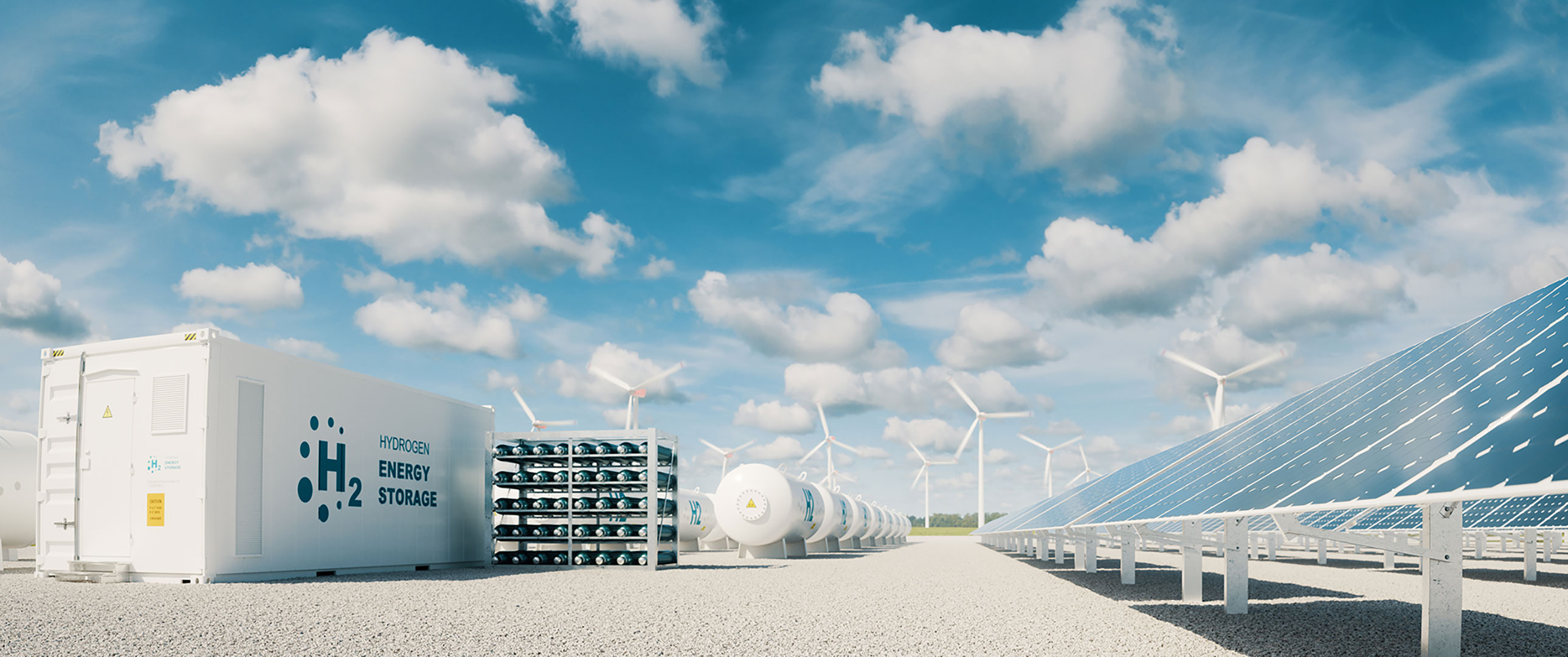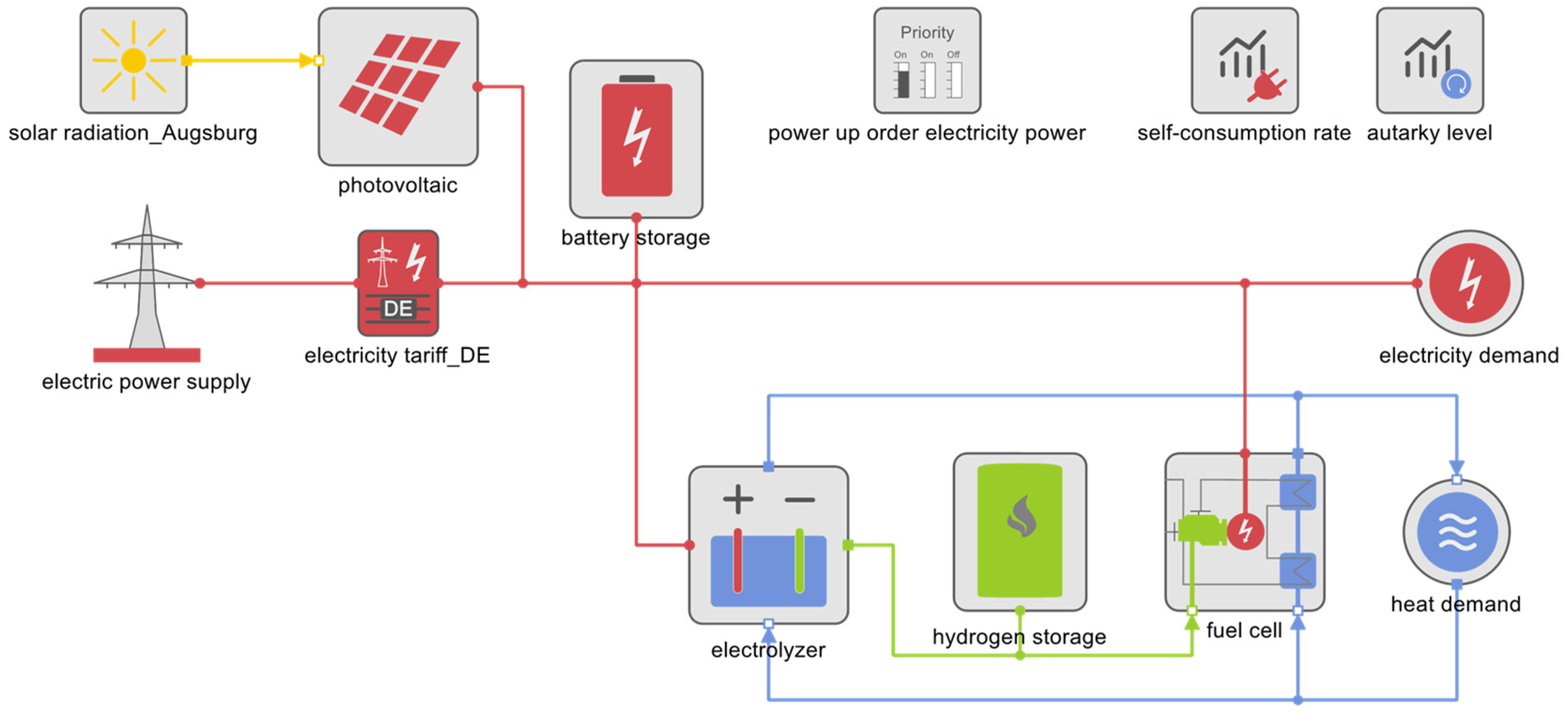This is where the research project »H2StorFa - Decentralized use of hydrogen as energy storage at factory sites« comes in: As part of the project, which was funded by the Bavarian Research Foundation, the possibilities and potentials of using green hydrogen were investigated, especially for factory sites of small and medium-sized companies.
Industrial companies can benefit from the decentralized generation and use of hydrogen at their factory sites, for example by efficiently using electricity from their own generation plants (such as photovoltaics) and storing it seasonally. Ultimately, this will reduce overall electricity costs and reduce greenhouse gas emissions.
However, planning such concepts is extremely complex due to the wide range of uses and technologies that can be applied, as well as site-specific conditions. Assessing the ecological and economic benefits is very time-consuming, which is why little expertise is available in this area to date.
In the »H2StorFa« project therefore different variants of energy systems (generation, storage, etc.) were modeled, simulated and then ecologically and economically evaluated for typical applications in industry. The focus was on:
- Hydrogen as an energy storage system with reverse power generation,
- Hydrogen mobility for company vehicles and
- Direct hydrogen use for technical applications

